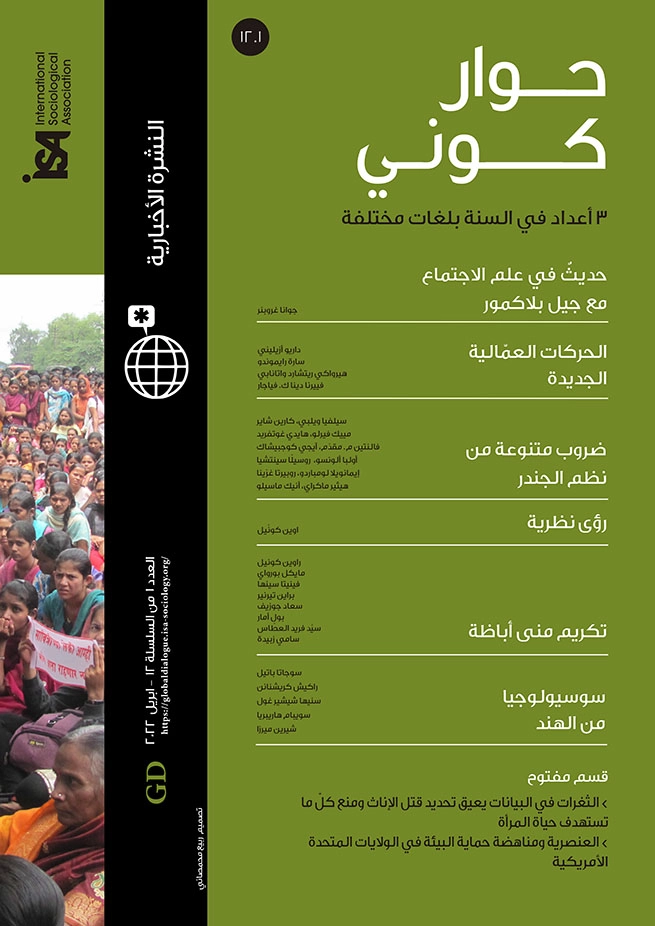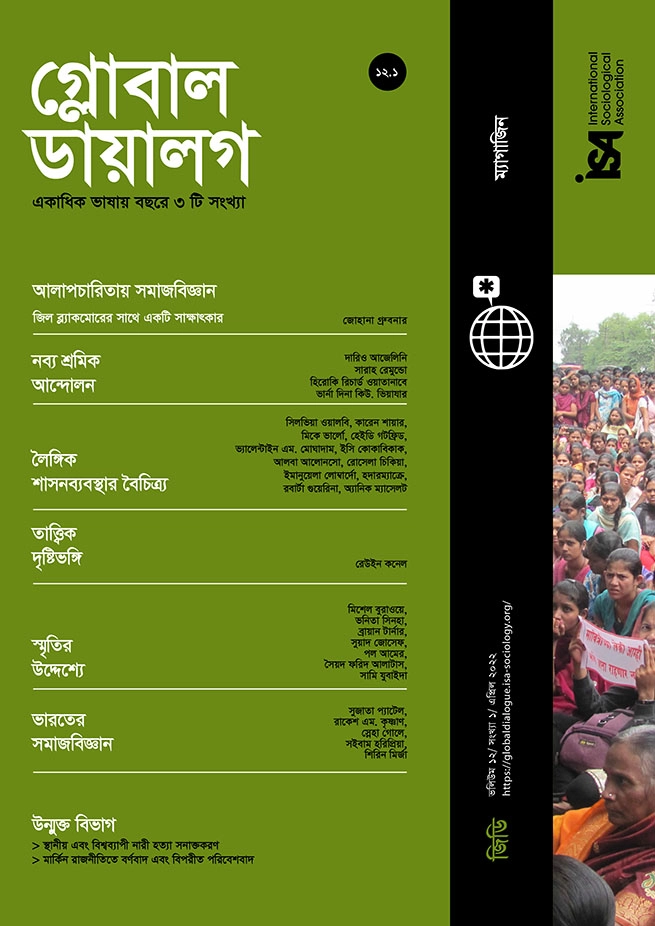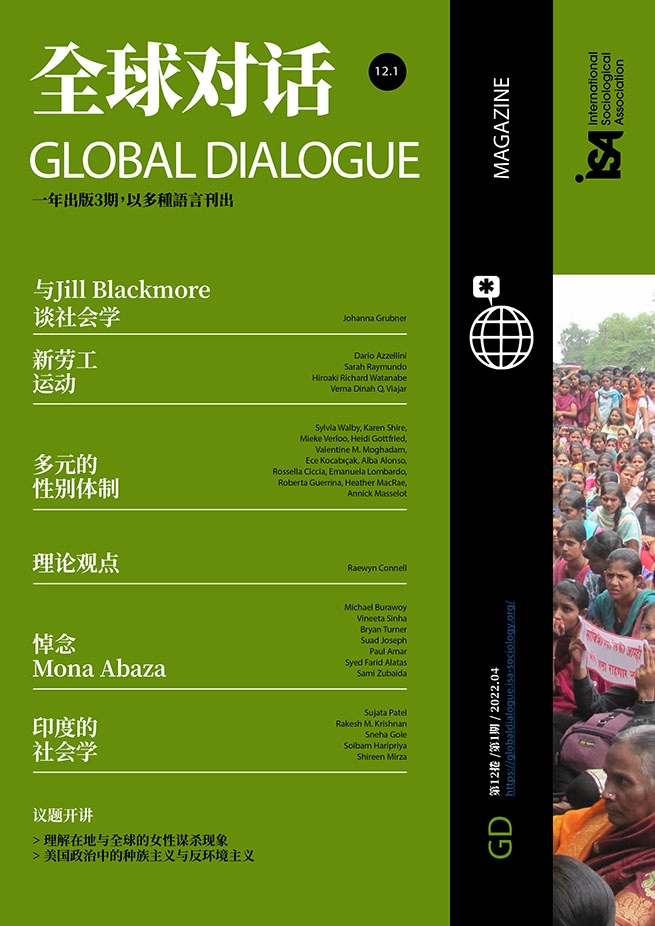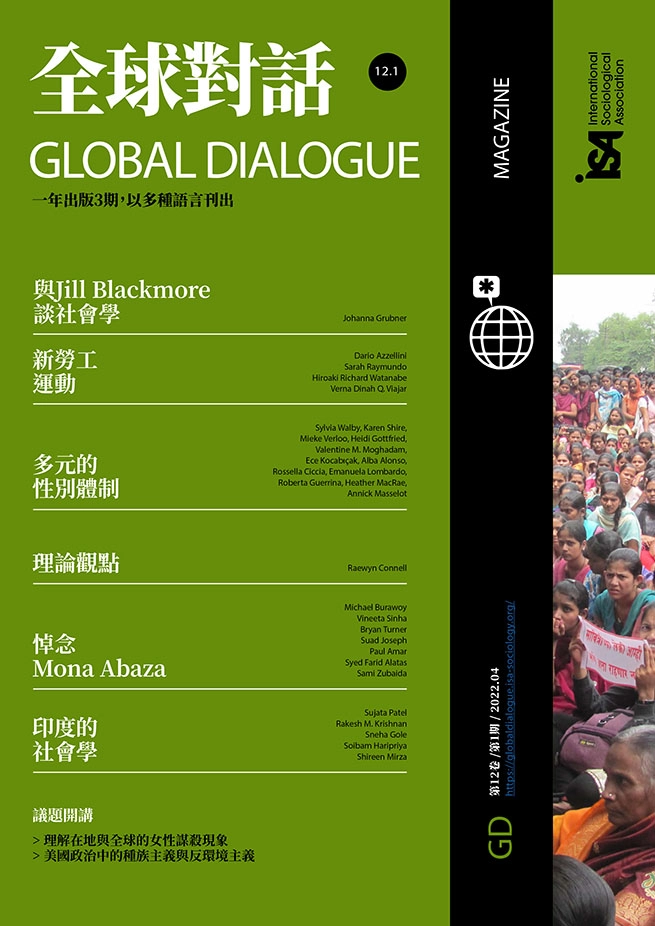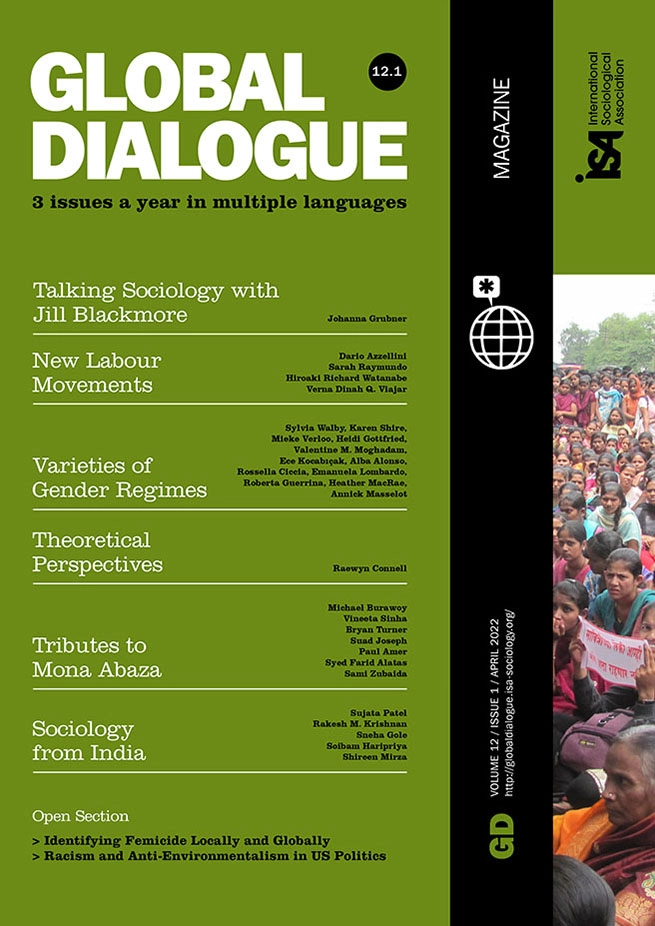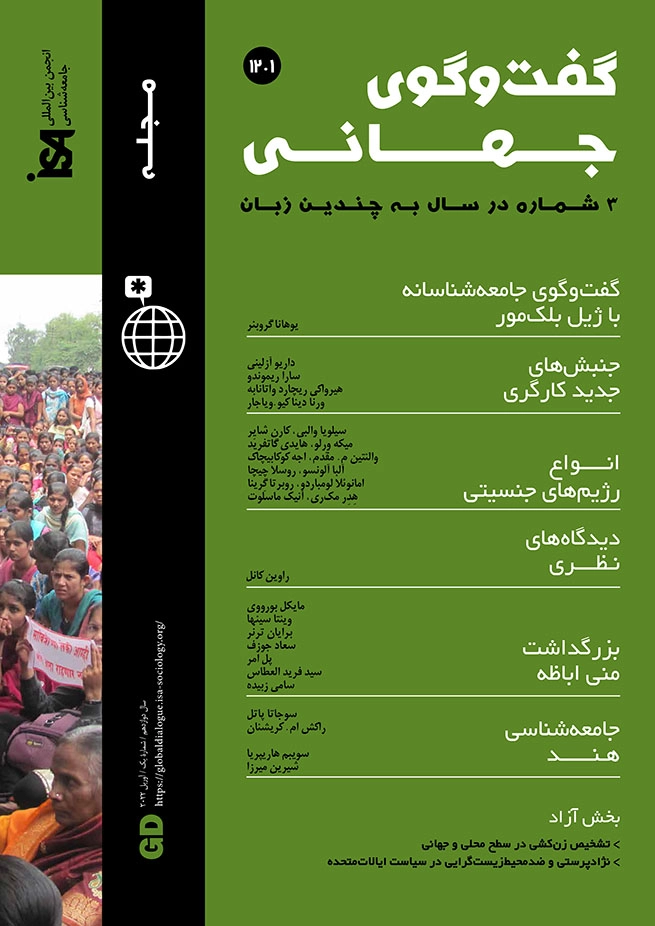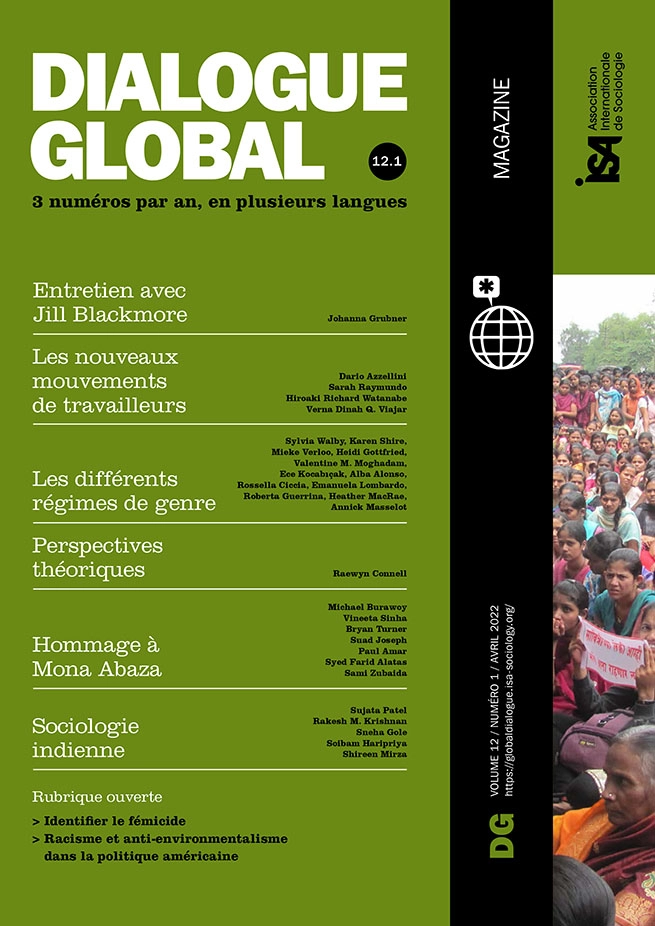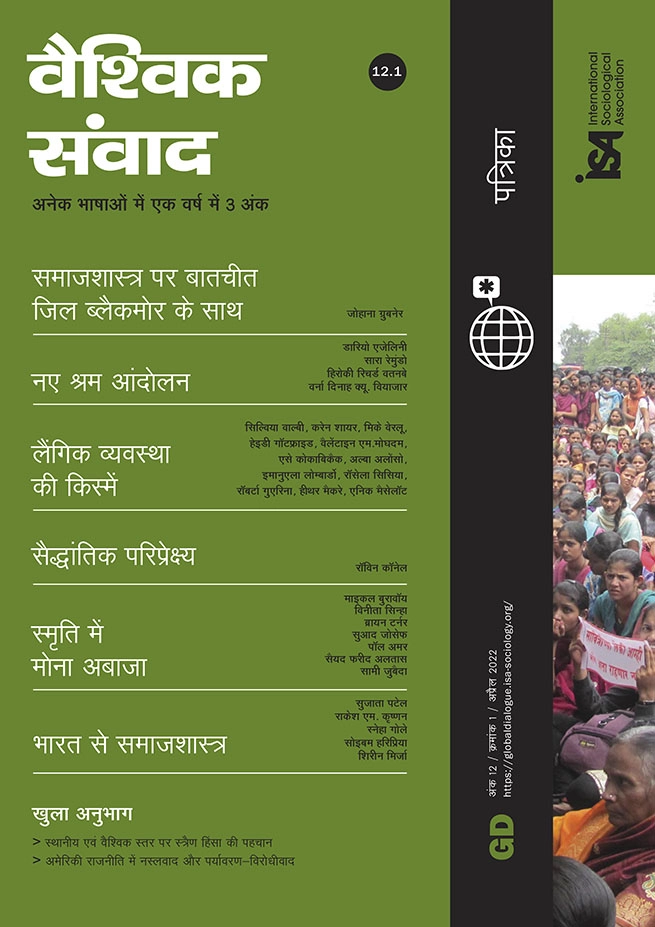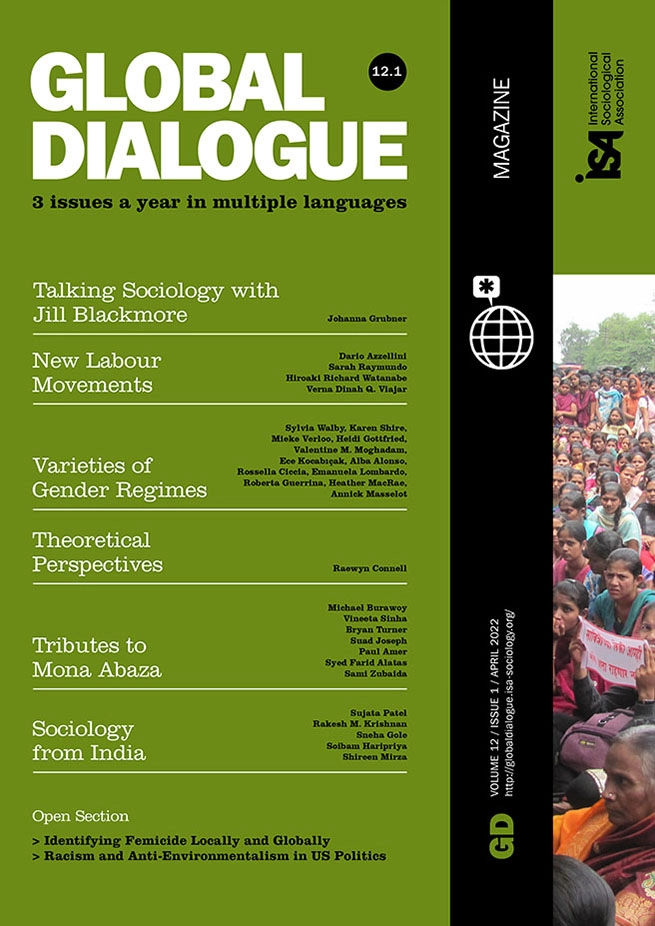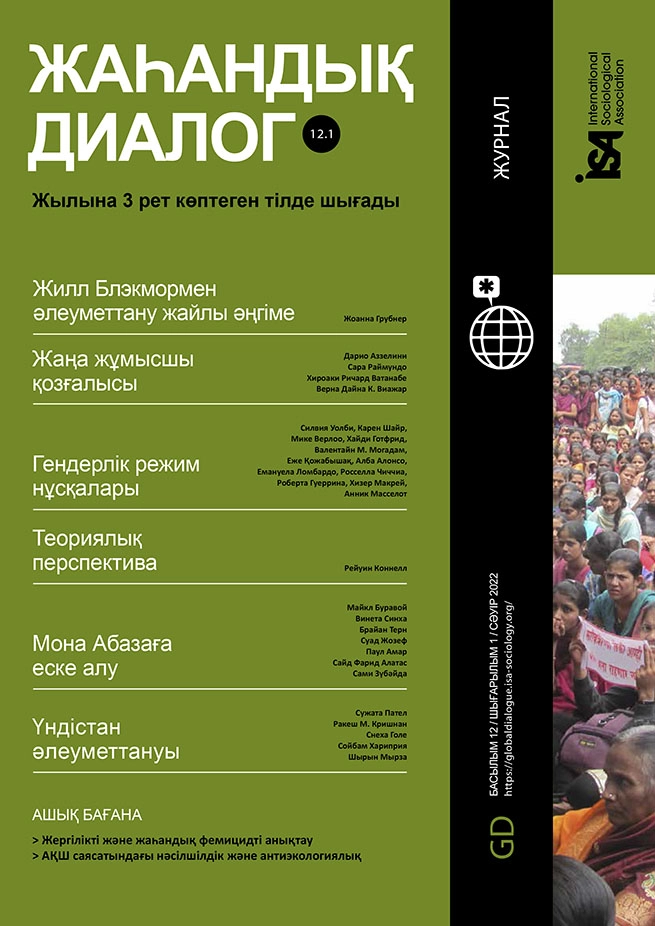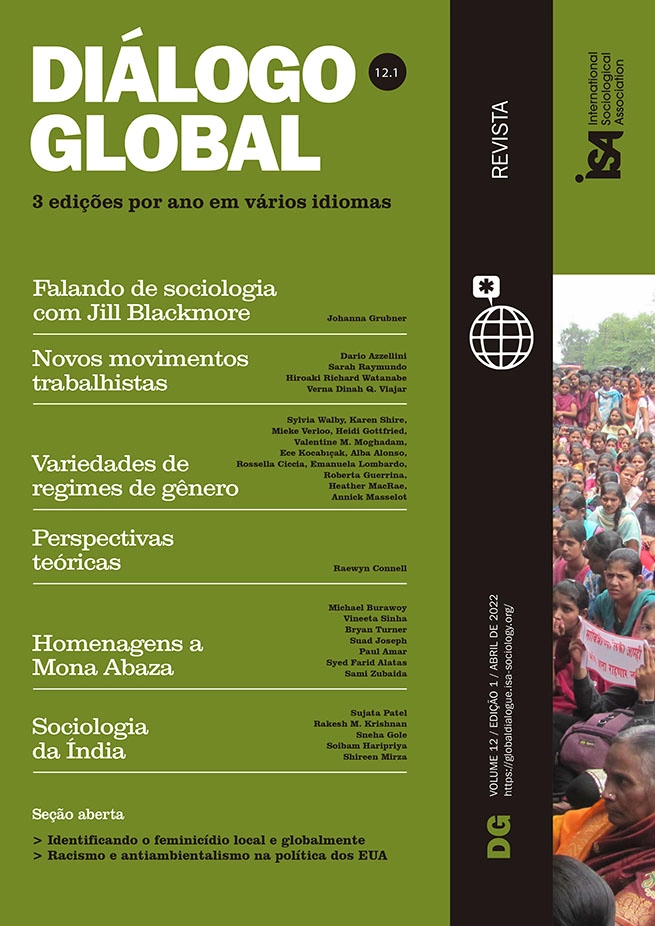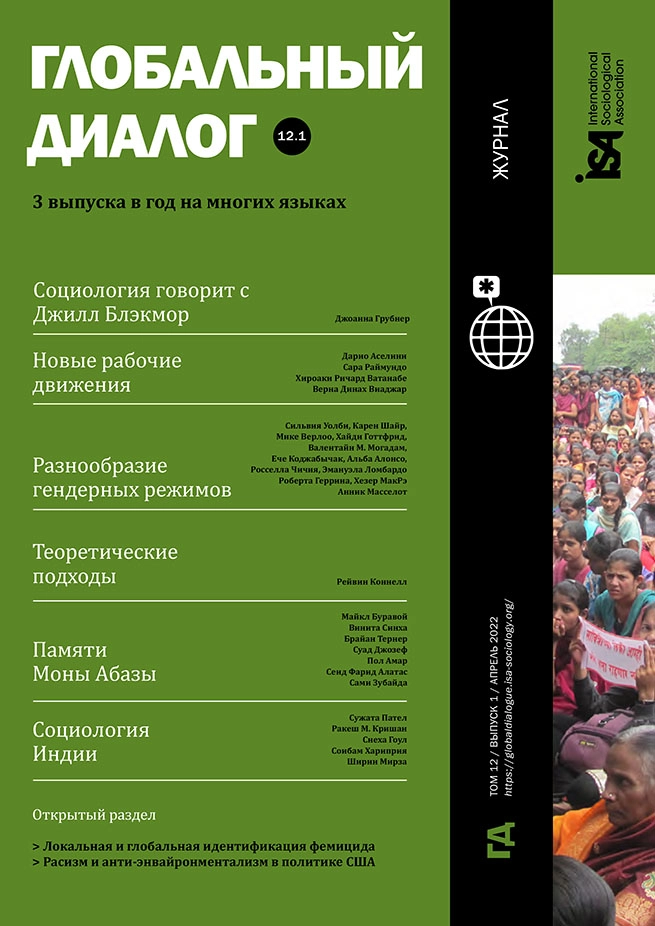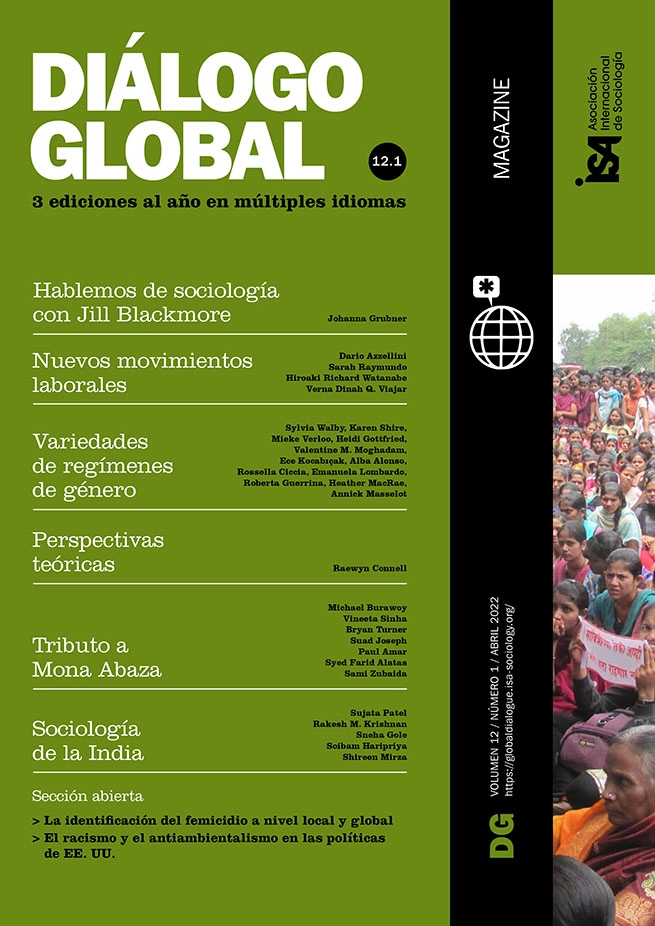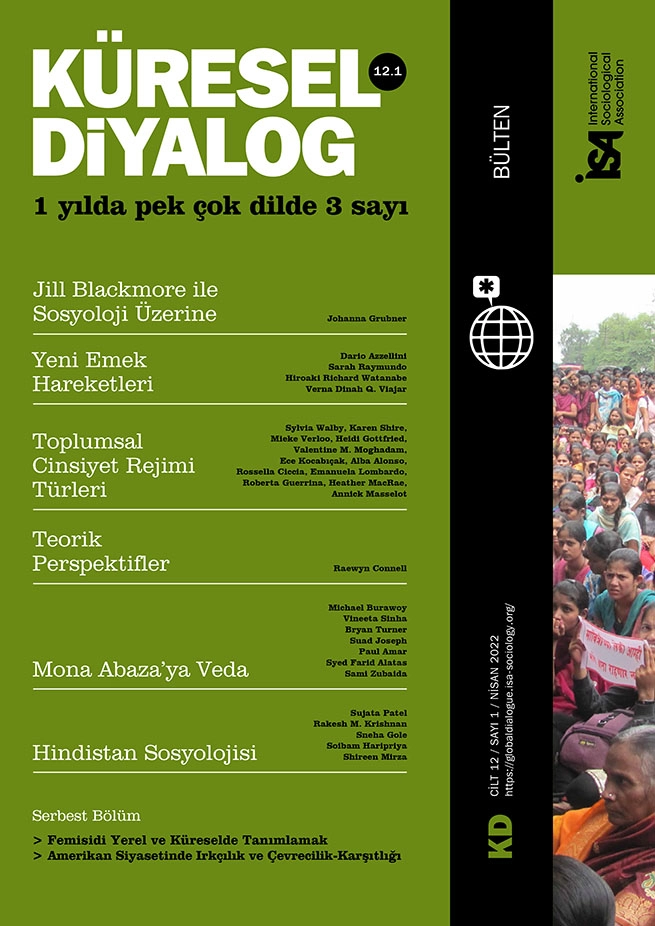Gender matters at a global level. This set of papers addresses new thinking about gender relations at the macro level needed to analyze the global. They debate the best way to theorize varieties of gender regime. They add an intersectional lens to the analysis of class that has, so far, been the main focus of macro-level analysis of the global in sociology. They add a macro level to the analysis of gender that has, so far, been predominantly analyzed at the micro and meso levels.
The papers develop from a debate held in Social Politics in 2020 as to how theories of varieties of gender regime are to be developed to address the current crisis and to more rigorously include the Global South as well as the Global North. How is the impact of crises, especially the COVID crisis, on gender relations to be theorized? Are varieties of public gender regime different in the Global South as compared with the North?
How is modernity, or rather, multiple entangled modernities, gendered? How is the great transformation to modernity, a core issue in contestations in sociological theory, gendered? Are domestic forms of social relations inherently or contingently modern or premodern? Is the most important distinction in varieties of gender regime the one between domestic and public forms of gender regime? Is the distinction between neoliberal and social democratic varieties of gender regime found in the Global North generally applicable, or are there different distinctions between varieties of the public form of gender regime in the Global South?
The concept of gender regime challenges the traditional reduction of gender to the family. The gender regime is constituted by multiple institutional domains across society. The range of domains is debated: sometimes including economy, polity, civil society, and violence; while others include additional domains.
How is violence, widely recognized as important to gender relations empirically but rarely integrated into core sociological theory, to be addressed? Is violence a fourth institutional domain alongside economy, polity, and civil society? Theorizing gender at a macro level requires an answer to this question. Too often, the macro level has been theorized as an ungendered political economy. The papers here take different positions on this debate about the theorization of violence: some argue for the recognition of the significance of violence for macro-level thinking about the gendered global by treating violence as a major institutional domain, others for dispersing violence across other domains.
New developments in the organization of care challenge social theory that traditionally narrowed the economy to marketized forms of labor. Care work is part of the economy, whether paid or unpaid. The social relations of the economy include the domestic relations as well as those between capital and labor.
There are often multiple differently gendered polities co-existing (and competing) in the same territory: “national” state, EU (or other hegemon), organized religion (e.g. Catholic Church). They have different depths of gendered democracy, so variations in the balance of power between them are gendered.
Gender relations are being rescaled. Global gendered care chains require the analysis of the macro level as well as meso and micro. They require analysis of the intersection of capitalism and varieties of gender regime; of migration; and of specifically gendered challenges to methodological nationalism. There is no bounded nation-state society in which all social domains are aligned. The rescaling of gender relations also involves the local (new forms of care provision, new forms of political project), and (would be) hegemons (the EU and China, as well as US). The papers offer different ways of thinking about trajectories of gender regimes over time and space, as differently gendered forms of combined and uneven development.
One of the substantive challenges this set of papers addresses is that of whether the COVID crisis is driving changes in the gender regime. On the one hand, there are sickness, unnecessary deaths, and processes of de-democratization. On the other, there are new forms of solidarity and progressive projects.
The papers address these themes. Sylvia Walby sets out how violence can be theorized as a fourth institutional domain, and how different varieties of gender regime deploy and regulate violence. Karen Shire addresses how family policies characteristic of conservative gender regimes fail to fundamentally change the gendered division of care labor, in what is neither a liberal nor a social-democratic transformation. Mieke Verloo argues for specifying what we mean by family, arguing instead for a concept of how society organizes bodies, sexuality, and kinship. She views the “anti-gender” turn to the right as countering the de-traditionalization of intimate relations as seen in the attacks on reproductive rights and sexual autonomy in Hungary and Poland. Heidi Gottfried and Karen Shire address the rescaling of gender relations in a comparative regional analysis of trajectories of change in Japan and Germany. Valentine M. Moghadam argues that reversals of several feminist gains in Iran and Tunisia can only be understood if, drawing on world systems theory, we account for how countries in the interstices of economic peripheries and semi-peripheries are affected by economic crises and hegemonic powers. Reversals in women rights in Tunisia are attributed to the over-exposure of semi-peripheries to world economic crises, while the US-led sanctions on Iran are to blame for the reversal of gender gains in that country. Ece Kocabıçak analyses changes in the nature of the patriarchal state in the Turkish gender regime. The analysis of Italy and Spain by Alba Alonso, Rossella Ciccia, and Emanuela Lombardo shows that Southern Europe is not a unified region, with large differences in the two countries’ gender regimes emerging from the interplay of polities and civil societies. Roberta Guerrina, Heather MacRae, and Annick Masselot theorize the EU as a distinctive gender regime, which has failed to address the gendered and racialized inequalities generated by the single market project, and exacerbated by multiple crises, the latest of which is Covid.
Sylvia Walby, City, University of London, UK, co-coordinator of ISA Thematic Group on Violence and Society (TG11), and member (and former President) of ISA Research Committee on Economy and Society (RC02), and Women, Gender and Society (RC32), <Sylvia.Walby@city.ac.uk>
Karen Shire, University Duisburg-Essen, and Vice-President of ISA RC02








